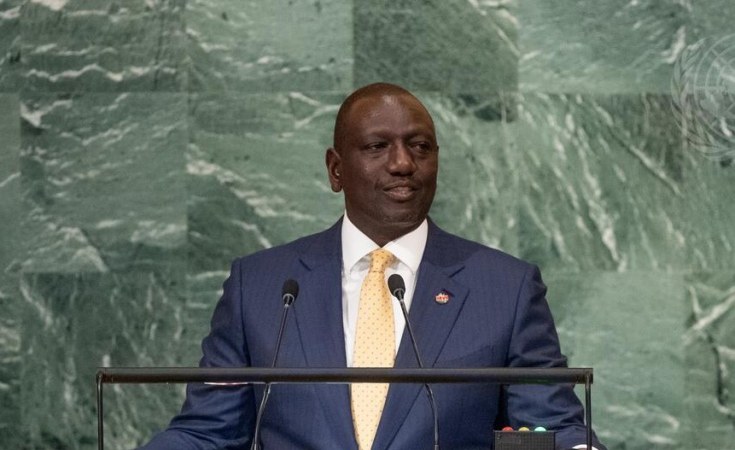The Kenyan economy faces many challenges, including soaring inflation and a high cost of living. However, the government is yet to tackle them, and the latest lack of cash to pay workers isn't making things easier.
Kenya's government has said it is experiencing a major cash crisis that has led to delays in paying the salaries of public sector workers.
Civil servants, including lawmakers, went on the Easter holidays without their due salaries for March. Other workers have gone without salaries for three months.
Abraham Rugo, a Kenyan economist, told DW that the government's failure to settle these unpaid salaries could trigger a major social upheaval.
"If you delay the salaries of civil servants, there are implications for both personal and public life," Rugo said, signaling that much of the impact would be felt in rural areas.
Our economy is one that has many layers of depedence, Rugo said. "So when you have people, who, for instance, work in government, they transfer [money] to families in rural areas," he said.
Salary delays
On a local television network, David Ndii, the presidential economic adviser, reassured workers that they would start receiving their unpaid salaries by the end of next week.
Although he described the current crisis as an issue of timing and an "operational liquidity crunch," Ndii said low revenue streams made the situation worse.
"March is a particularly poor month for revenue. April is usually a good month because you have two corporate income taxes that are paid," Ndii said. He anticipated there would be some available money to address the current cash crunch.
Workers threaten strike
Raising money to pay the civil servants in time has become crucial for the government to avert a potential workers' strike.
Some workers' unions representing national and county government employees have already notified the Central Organization of Trade Unions (COTU), of the intention of their members to boycott work.
The local newspaper, Daily Nation, reported that strike notices have been issued by the Union of Kenya Civil Servants and the Kenya County Government Workers Union.
County governments broke too
Kenya's Deputy President Rigathi Gachagua revealed that not only are there delays in salary payments but also disbursement of cash to county governments to cover health and education spending had not been made.
Gachagua has blamed the cash crunch on the lack of extra money after the government paid off some interest on external debts last month. Kenya's government said it doesn't want to default on its debts. Ghana and Zambia are currently seeking an IMF bailout as the two African nations face similar economic challenges.
Public debt crisis
This year's annual interest payments on Kenya's domestic debt hit 680 billion Kenyan shillings ($5.09 billion, Ꞓ4.6 billion). Ten years ago, it was 180 billion.
"They [the previous government] borrowed money left, right and centre," Gachagua said. "And because we are a responsible government, we have to pay this money. Last week, some loans matured. And they have to be paid because we have obligations."
The politician could not tell Kenyans when the cash crunch would be resolved though, so that workers could be paid.
"What we are collecting this week will pay the salaries and other requirements," he said.
Kenya's economy facing turbulence
Kenya is already facing significant challenges thanks to the high cost of living, which sparked weeks of protests called by the opposition.
Kenyan opposition leader Raila Odinga only called off the anti-government protests after an appeal from President William Ruto.
Billow Kerrow, a political economist, said in a television interview that although Kenya's public debt is a major cause, low exports and the high cost of imports are also contributing factors.
"Our exports have been going down, there is no tourism since [the pandemic] started and the [prices] of imports have really gone up. So we are paying twice as much today to import the same number of goods we were in 2019," Kerrow said.
President Ruto told DW last month that he was confident the Kenyan economy was on the right path and would bounce back soon.
"I am very confident that the country is on an upward trajectory," he said.
Andrew Wasike in Kenya contributed this article.
Edited by: Chrispin Mwakideu


